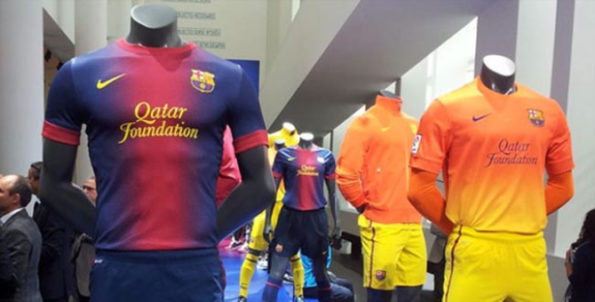Search
To search for an exact match, type the word or phrase you want in quotation marks.
A*DESK has been offering since 2002 contents about criticism and contemporary art. A*DESK has become consolidated thanks to all those who have believed in the project, all those who have followed us, debating, participating and collaborating. Many people have collaborated with A*DESK, and continue to do so. Their efforts, knowledge and belief in the project are what make it grow internationally. At A*DESK we have also generated work for over one hundred professionals in culture, from small collaborations with reviews and classes, to more prolonged and intense collaborations.
At A*DESK we believe in the need for free and universal access to culture and knowledge. We want to carry on being independent, remaining open to more ideas and opinions. If you believe in A*DESK, we need your backing to be able to continue. You can now participate in the project by supporting it. You can choose how much you want to contribute to the project.
You can decide how much you want to bring to the project.

I accepted this irksome commission thinking that in the cold month of February it would be easy to find a spare afternoon at home, with no regrets; however, the installation of an anticyclone over the Principality and then, a string of news about the unstoppable putrefaction of the conventional political system, are an invitation to hit the streets without any need for a pretext. Sloth. There’s no other word for it and no doubt it’s not by chance that it’s so. Sloth, that is the sensation produced on having to enter into the sovereignty debate today, sick to the teeth, as we are, of opportunistic hot air and bastardised iconography.
The commissioning letter insisted on the argument that “artistic practices can’t be left on the margins of what could profoundly affect them”. I deduce, that at best, they are referring, for example, to the recent economic restrictions besetting Macba due to the refusal of the Ministry of Education, Culture and Sport to proceed to deposit their contributions corresponding to the last fiscal year, alleging that the Generalitat has not fulfilled the established deficit objectives. I’m not sure how Mr Leopoldo manages this dilemma in his head, but I also find it hard to believe that he’d be that interested in my humble opinion, which, in any case, merely laments the situation for those kids, the sons of Macba, who might be affected by the progressive sinking of the flagship. But, without abandoning the marine metaphor –so appropriate, so Mediterranean– it’s better not to continue with these digressions…or, then again, why not? When all’s said and done, in the final instance what this discussion is reduced to discerning is which political conditions could guarantee a better development of the cultural infrastructures and industries. In other words, to tackle the possible impact the culmination of a separatist shift, in the terms that are proposed in their majority, could have on the local artistic ecosystem, it is imperative to distinguish between the evident consequences that this would have on the institutional structure and, as we see it, the null effect that it ought to suppose on the specific territory of art practices. Let’s begin with the last statement, far more complex than it appears and, what’s more, susceptible to allowing us some amusing historic digressions, so common in this type of endeavour.
“There’s no scarcity of façades in Barcelona; one could even say that it is the city of façades. Façades dominates everything, and so everything there is fachadoso.” When Unamuno resolved with these words, such a damning portrait of the hypocrisy of the Catalan, modernist bourgeoisie, with no possibility of him being aware of it, he hits it on the nail. Catalonia is, from the perspective of political hegemonies, a radically conservative nation– displaced from the fatxenda (vainglorious) to the fascist- camouflaged behind a veil of exquisite formality. The reasons that explain this reality are not genetic in nature but historic in character. It’s enough to remember Pierre Vilar’s bygone and by no means suspicious analyses of the Catalan miracles: it is precisely from under the oppressive shadow of the Bourbons that the modern, contemporary Catalonia emerges, in the 18th century, identifying itself with the emergence of a bourgeoisie which, cast out from the State, ventures everything on commercial development and capitalist industry. The traditional definition of the miserly Catalan obsessed with the ideas of work and saving money, too often forgets that these parameters don’t constitute a psychological portrait so much as what in social terms must be recognised as the simple principles of a class ideology. In short, to the extent that every nation is complex– an equal combination of symbols, stories and enemies – articulated by the dominant classes, Catalonia is a nation constructed with an unequivocally, extremely conservative and fachadoso slant that, since then, yearns for some form of State structure, with the consolidation and perpetuation of such a State as its horizon. All this laborious detour has the sense of allowing us finally to formulate a rapid equation: today any venture to consolidate a national Catalan State has to recognise, even despite itself, that it incorporates this very tradition, and consequently, if we aspire to test new modes for social and collective development the priority is to displace the dominant ideology and with it, its contiguous national constructs. Only if this operation with its founding vocation obtains an iota of success, would we be in a condition to imagine the pertinent institutional protocols that might perhaps call for some state formulae to be respected, be they sovereign or federal. Returning now to our odious charge. Having exposed our reasoning, any art practices worthy of attention oughtn’t to suffer any effect of the national debate in the way it has been opened by the very structures of established politics. The reason is obvious: the art practices to which we are referring are interesting precisely because they already concern themselves with deploying a critical vision of the imposed ideological conventions. In other words, its true battlefield was already, and remains open to, the outbreak of a bandying of banners, whichever they might be, mixing up their iconic bands of colour however they want.
One could respond to everything proposed here that our perspective is too orthodox, and for this, exclusive in its very analysis. That perhaps there are even those who evoke memorable episodes and other battles, such as the fertile communion that was produced in the seventies between the political parties and social forces to vindicate “freedom, amnesty and the statute of autonomy” (of the old ideals of the revolution of enlightenment, fraternity has for a long time now been relegated to the periphery of anarchist thought) that made it possible for the most distinguished Catalan artists of the era to command a small renaissance of political poster making. None of these possible objections seems reasonable. Of the first question it’s enough to specify that our argument only excludes a type of artistic practices which, on the other hand, has always seemed irrelevant to us; referring here to the much trumpeted obsession of certain contemporary Catalan art to ruminate constantly over itself, prowling around the very idea of art and congratulating itself on its production of constant winks at its own vices, manners and genealogical ties. In turn, those artistic practices that could possibly become explicitly involved with a hypothetical separatist process, in accord with what’s been proposed, aren’t by any means left exempt from analysis, quite the contrary, they are left matched with their own army of organic intellectuals disposed to aid the established State model, even if it be now dressed in new robes. It could be that in the end, given these scenarios, it would be much easier to resolve the representation of Catalonia more successfully in large international competitions. As far as the evocation of history is concerned, the answer is simple: during the agony of Francoism and in the first years of the so-called Transition, despite numerous limitations, the country found itself in a constituting process, albeit a very fickle one, but one which, for that very reason, demanded a degree of implication on the part of all the agents who were disposed to enter into the struggle to define the State model. The final result is more than well known; they barely modified the basic forms to guarantee that hegemonic power didn’t change hands so that all that generous artistic collaboration– that was legitimated in Biennale of 1976 with the macro-project “Vanguardia artística y realidad social en el Estado Español 1936-1976” –was of little use other than for a few, until this day, to live off services rendered. Conclusion: the territory explored on the part of artistic practices with a minimal political vocation, in the most legitimate sense of the term, is very broad and far removed from the limited panel of flags that have been called into play.
Quite another thing, as we’ve recognised since the first lines, is what what could occur in the ambit of the local structure of the art system in the event of the separatist process prospering. In this specific context, in appearance, the shakeup could be notable. But, it could also be that its scope could be less than foreseen; and not just because at the moment it is imperative to manage the infrastructure with barely any contribution from the central administration so much as, when all is said and done, for better or for worse, for a while now cultural policies in Catalonia have proposed the desire to design a system in accord with the conventions that would correspond to a traditional State. There isn’t, to illustrate it rapidly and easily, any other autonomous community that has positioned itself so clearly with the supposed need to avail itself of, in the style of Louis XIV, national Academies, a National Theatre, and some National Museums that guarantee the conservation of the values established over time, which consequently define what most resembles the genius loci. Under these circumstances, it’s fitting to presuppose that the merits and demerits that the current situation generates will be definitively consecrated. If this reflection contains any dose of truth, then it’s worth transmitting to all the agents of the local art system an invitation to quite calmly not lose any sleep over it. Apart from minor issues, of little note, the changes could have far less impact than any one might fear. Neither the Catalan galleries will be banned from Arco for conditions of lineage, nor will the services that the different national agencies of cultural promotion stop being covered by their local counterparts that will foreseeably substitute them. You already know the story: everything moves to guarantee the eternity of what is established.

Martí Peran is art critic and professor at the Universitat de Barcelona
"A desk is a dangerous place from which to watch the world" (John Le Carré)